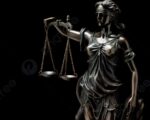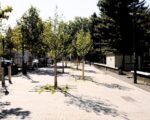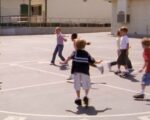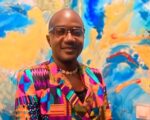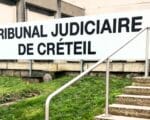« Cette lettre est destinée à montrer la solidarité de nombreux membres éminents de la communauté scientifique mondiale avec les personnalités politiques, les artistes, les sportifs et les autres qui ont déjà exprimé leur horreur face aux actions du gouvernement russe contre ses citoyens homosexuels », écrivent les signataires.
La lettre a été rédigée par le Britannique Harold Kroto, Nobel de chimie 1996, et son ami de longue date Ian McKellen, acteur britannique connu pour son engagement en faveur des droits des homosexuels.
Les signataires de la lettre sont en majorité des Prix Nobel de physique, chimie et médecine mais ils incluent aussi les écrivains J.M. Coetzee et Herta Muller ainsi que la militante pacifique nord-irlandaise Mairead Maguire.
« Il n’est jamais facile de protester mais nous espérons qu’en exprimant notre opposition à la nouvelle législation il soit possible d’encourager l’Etat russe à épouser les principes démocratiques, politiques et humanitaires du 21e siècle pour lesquels (le dernier dirigeant soviétique) Mikhaïl Gorbatchev s’est battu », poursuit la lettre.
Vladimir Poutine a promulgué en juin une loi punissant d’amende et de prison la « propagande » homosexuelle devant mineurs, un texte controversé qui a suscité des appels au boycott des jeux Olympiques d’hiver prévus du 7 au 23 février à Sotchi, sur les bords de la mer Noire.
Les signataires de la lettre se disent « encouragés » dans leur démarche par « les grâces de prisonniers politiques qui ont récemment été annoncées ».
Le président Vladimir Poutine a gracié en décembre l’ex-oligarque Mikhaïl Khodorkovski, qui fut un temps considéré comme son ennemi juré, et amnistié les jeunes femmes du groupe punk Pussy Riot.
>> In an open letter to the President and the Russian people given exclusively to The Independent, leading figures including the novelist JM Coetzee, geneticist Sir Paul Nurse and chemist Sir Harry Kroto speak out against the ban on “homosexual propaganda” which activists say has led to violence and even suicides among gay people.
The demand was formulated by Sir Harry and his friend Sir Ian McKellen, an influential spokesman for Lesbian, Gay, Bisexual and Transgender (LGBT) rights. The pair have known each other since their school days. “The letter is written to indicate that many senior members of the international scientific community show solidarity with politicians, artists, sports people and many others who have already expressed their abhorrence for the Russian government’s actions against its gay citizens,” the letter states.
“Protest is never easy but we hope that by expressing opposition to the new legislation it might be possible to encourage the Russian state to embrace the 21st century humanitarian, political and inclusive democratic principles which Mikhail Gorbachev worked so hard to achieve,” it adds.
The move comes just days ahead of the Winter Olympics in the Black Sea resort of Sochi, Russia. Mr Putin has faced global hostility over the legislation which outlaws the promotion of “non-traditional sexual relations” among minors prompting fears that gay foreign athletes could be targeted whilst competing.
The law has been interpreted as banning parents or teachers from ascribing equal rights to same sex couples and is alleged to have given the green light for vigilante groups to terrorise the LGBT community in Russia. The signatories acknowledge Mr Putin’s recent decision to grant an amnesty to jailed political dissidents including members of the punk band Pussy Riot and the release of Greenpeace demonstrators who were campaigning against Russia’s exploitation of oil and gas in the Arctic.
Critics have claimed the gesture was an attempt to head off international criticism ahead of the opening ceremony next month.
Sir Harry said he had enjoyed the “the tremendous friendship of Russian scientists” during his illustrious career. He said he would honour an invitation to go to the country in 2014 – which he accepted before the issue arose – but this would be his last unless the law was repealed. He said he intended to make his concerns clear during his time there.
Sir Ian, who signed the letter “AKA Henry V/Gandalf”, said he had been advised by the UK Foreign Office that he could not speak openly about his sexuality while in Russia, so had turned down the opportunity to appear at Russian film festivals.
Also among those to sign the letter was Mairead Maguire, winner of the 1976 Nobel Peace prize.
The letter in full
On June 30th 2013, President Putin signed into Russian law a nationwide ban on the “propaganda of non-traditional sexual relations to minors”. This inhibits the freedom of local and foreign Lesbian, Gay, Bisexual and Transgendered people to speak openly about their sexuality and prohibits Gay Pride celebrations. Scientist Harold Kroto (HK) and actor Ian McKellen (IMcK), who have been friends since schooldays have formulated this open letter to Mr Putin and the People of Russia and garnered support for its sentiment from 27 Nobel Laureates. The letter is written to indicate that many senior members of the international scientific community show solidarity with politicians, artists, sports people and many others who have already expressed their abhorrence for the Russian Government’s actions against its gay citizens.
In my case (HK) I have had numerous invitations to Russia over the years and have much enjoyed the tremendous friendship of Russian scientists, whenever I have visited. I accepted an invitation some time ago to go to Russia in 2014 before this issue arose and although I have considered seriously cancelling my visit I have decided to go and while in Russia make my grave concerns clear at appropriate moments by pointing out that I shall not consider any further invitations unless this law is repealed or moves to repeal it are taken and in addition a serious effort is made by the Russian Government to ensure the safety of the Russian LGBT community. In my case (IMcK) I have been warned by the UK Foreign Office that in Russia I could not speak openly about my sexuality, at least in the hearing of anyone under the age of 18. I have therefore felt that I had to turn down invitations to attend Russian film festivals.
Protest is never easy but we hope that by expressing opposition to the new legislation it might be possible to encourage the Russian State to embrace the 21st Century humanitarian, political and inclusive democratic principles which Mikhail Gorbachev worked so hard to achieve. We are encouraged that our serious concerns may be considered by the pardons of imprisoned political activists which have recently been announced.
Sincerely,
Harold Kroto (Nobel Chemistry 1996), Ian McKellen (aka Henry V/Gandalf), Mairead Maguire (Nobel Peace 1976), Eric Cornell (Nobel Physics 2001), Sheldon Glashow (Nobel Physics 1979), Brian Josephson (Nobel Physics 1973), Martin Perl (Nobel Physics 1995), Roald Hoffmann (Chemistry 1981), Gerhard Ertl (Chemistry 2007), Susumu Tonegawa (Physiology/Medicine 1987), Tony Leggett (Nobel Physics 2003), Dudley Herschbach (Nobel Chemistry 1986), Paul Nurse (Nobel Physiology/Medicine 2001), Robert Curl (Nobel Chemistry 1996), Martin Chalfie (Nobel Chemistry 2008), Richard Roberts (Nobel Physiology/Medicine 1993), John Polanyi (Nobel Chemistry 1986), Edmond Fischer (Nobel Physiology/Medicine 1992), Timothy Hunt (Nobel Physiology/Medicine 2001), Jack Szostak (Nobel Physiology/Medicine 2009), John Coetzee (Nobel Literature 2003), Eric Wieschaus (Nobel Physiology/Medicine 1995), Leon Lederman (Nobel Physics 1988), Peter Agre (Nobel Chemistry 2003), John Sulston (Nobel Physiology/Medicine 2002), Herta Müller (Nobel Literature 2009), Brian Schmidt (Nobel Physics 2011), Thomas Steitz (Nobel Chemistry 2009).
Avec AFP
avec AFP





